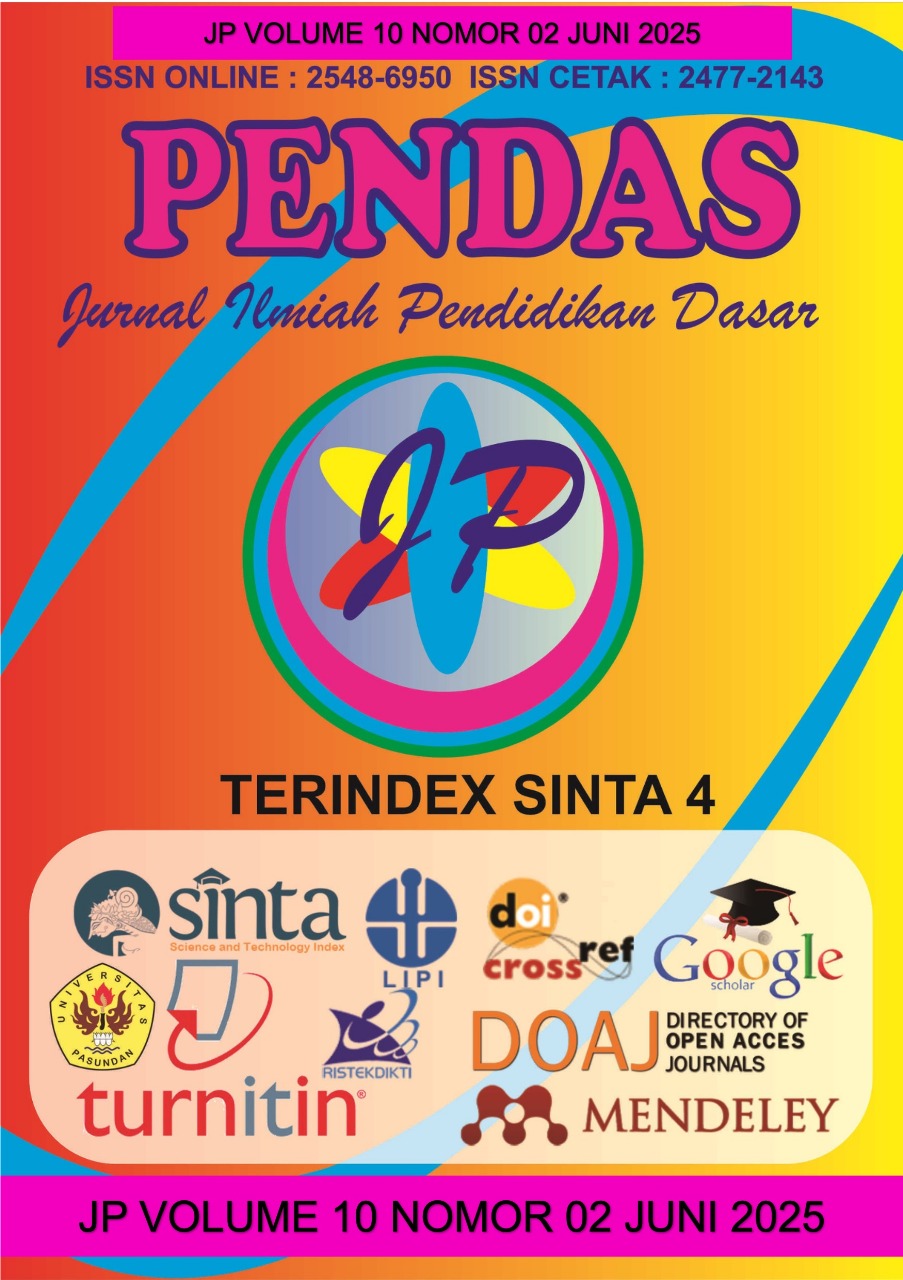EVALUASI KINERJA GURU DALAM PEMBELAJARAN SD KANISIUS GENDONGAN MENGGUNAKAN MODEL TYPES
DOI:
https://doi.org/10.23969/jp.v10i2.25362Keywords:
evaluation, teacher performance, qualitativeAbstract
This study was conducted to evaluate teacher performance at SD Kanisius Gendongan using the TYPES (The Bedford County Public Schools Teacher Performance Evaluation System) model, which includes seven performance standards: Learning Planning, Teaching and Learning Process, Assessment, Learning Environment, Communication, Professionalism, and Achieving Students. This type of research is an evaluative study with a descriptive approach, which aims to describe and assess performance based on empirical data. Data collection was carried out through survey techniques, including interviews, observations, and distributing questionnaires. The evaluation results show that in general teacher performance is in the high to very high category. The Learning Communication aspect occupies the highest position with a score (95.83%), reflecting the teacher's ability to build good communication. Other aspects also show good results, such as the Learning Environment (77%) created by teachers has supported an effective learning process. Teaching and Learning Process and Professionalism (each 75%) in the aspect of the learning process itself the learning process runs according to the learning plan, in the aspect of professionalism teachers have high integrity and responsibility Learning Planning (73.33%) SD Kanisius Gendongan has a consistent learning planning system and culture, Assessment (72.22%) this can be seen from the teachers have prepared assessment instruments that are in accordance with learning objectives, and Achieving Students (70.83%) this reflects that teachers have succeeded in guiding and directing students to achieve optimal achievements. These findings indicate that teachers have carried out their duties professionally and are able to create an effective, enjoyable, and development-oriented learning atmosphere for students.
Downloads
References
Bado, B. (2021). Model Pendekatan Kualitatif: Telaah Dalam Metode Penelitian Ilmiah. In Pengantar Metode Kualitatif.
Dimhari, A. (2023). Implementasi Permendikbud Nomor 15 Tahun 2018 Tentang Pemenuhan Beban Kerja Guru, Kepala Sekolah, Dan Pengawas Sekolah Di Smpn 3 Doplang Kabupaten Blora. Ji@P, 11(1), 1–14. https://doi.org/10.33061/jp.v11i1.6154
Ela Nuvita Sari, S. A. (2016). 済無No Title No Title No Title. 10, 1–23.
Festiawan, R. (2020). Belajar dan pendekatan pembelajaran. Universitas Jenderal Soedirman, 1–17.
Kartomo, A. I., & Slameto, S. (2016). Evaluasi Kinerja Guru Bersertifikasi. Kelola: Jurnal Manajemen Pendidikan, 3(2), 219. https://doi.org/10.24246/j.jk.2016.v3.i2.p219-229
Merfela, A. D., Fitria, D., Ermita, E., & Rifmasari, Y. (2025). Evaluasi dan Strategi Peningkatan Kinerja Guru dalam. 2(1).
Reza Arviansyah, M., & Shagena, A. (2022). Tantangan dan Peran Dari Guru dalam Kurikulum Merdeka Belajar. Jurnal Ilmiah Kependidikan, 15(1), 219–232.
Sarifudin, A. (2019). Peningkatan Kinerja Guru Dalam Impelementasi Penilaian Sistem SKS Melalui Supervisi Akademik Pengawas Sekolah. Edukasi Islami: Jurnal Pendidikan Islam, 8(2), 417–434.
Downloads
Published
Issue
Section
License
Copyright (c) 2025 Pendas : Jurnal Ilmiah Pendidikan Dasar

This work is licensed under a Creative Commons Attribution 4.0 International License.














































